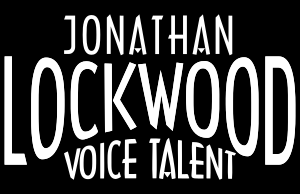Inefficient?
In the last few years, I've had some periods in which I submitted hundreds of auditions on Voice123, Voices.com and private sources that comprise less than 3 % of the total, and find that I win 9.3% of them. This includes the 12% that are never listened to and the unknown percentage of jobs that just blow up and get dropped, so this is a straight-up win percentage purely based on how many auditions I submit and how many I actually win. This average can be lower or higher when considering smaller sample sizes, but when the total batch is 400 or more, it's very consistent. The average win is about $350, and I can submit 3 auditions per hour for a total of 133.3 hours of effort. Every time I've made the calculation it comes out very close to $125 an hour.
I don't consider $125 an hour an outstanding rate for a voice actor. But if you have time on your hands, it's better than a sharp stick to the eye. This doesn't even consider the fact that some of those audition wins will turn into repeat (or even regular) clients.

But...it's also been my observation that a majority will be one hit wonders. While it's convenient for voice actors to have access to dozens of auditions per day, it's also convenient for clients to post jobs, knowing dozens will respond. When finding a voice was more involved, clients would routinely call upon those from their go-to list, but now that they have quick access to an eager collection of talents, many may simply post all their projects, thinking, “Maybe this time someone will really blow the client away. Why not? (click)” They have every right to this policy, but it does mean the P2P strategy can be a leaky bucket for voice actors.
Fairly often I receive messages from those who've found my voice demos. About 80% of the time they want me to audition, but the remaining 20% has already decided to hire me. The sample size here is smaller, but I've determined my win percentage is more like 15%. Obviously my efforts would be better spent creating my own strategy for attracting prospective clients.
If we use the same sample size as with my P2P auditions, and if we assume I can (at some point) accumulate 400 respondents to my own strategy, then that 133.3 hours is reduced to 106.6 hours, and (when factoring in those no-audition-needed jobs) my result goes from $125 to around $531 per hour, increasing my efficiency by more than 400%.
Noteworthy Items
That my win percentage gets me $125 per hour obviously doesn't mean this will be the case for everyone. More than 90% of my auditions are submitted on Voice123, and at the moment my private stats report, 'Your audition/proposal ranking score is greater than the ranking score of 91% of all Premium Subscribers (91 percentile).’ So I can only estimate that the lower your ranking falls from 91%, the lower your per-hour auditioning rate will be. Further, since 9% of talent have a higher ranking than I, some may be able to make more.
Also, in 2012 I upgraded to a Voice123 Platinum subscription, which means I receive all auditions that match my profile. Is that an advantage? Of course. Do I pay for that advantage? I do. It's a $5,000 annual cost. And I think this addresses one of the criticisms I frequently see from other voice actors. One reviewer is irritated that regardless of your skill you can get posted on Voice123 and compete with professionals 'like himself' for voice work. While that's certainly true, it's also true that you can choose a Free, Premium or Platinum subscription based upon your skill.
Further, I'm in the process of working with a local web strategist here in San Miguel de Allende who’s helping me build my personal attraction strategy and teaching me how to maximize its effectiveness. That costs me, and there will be time spent managing and creating content for it. But is it time and money well spent? Seems like a no brainer for me, especially when it's making me less reliant on someone else's strategy.
So I'm with those who remind us that P2P sites aren't the most efficient way to build your VO business. But if you're just starting out or don't yet have your own thriving strategy, I'd absolutely go for it until you do, assuming you find it's worth the fee you're paying for whatever subscription you choose. Personally I intend to continue using them until such a time as I don't need them anymore, which I'm aware may never come.
Greedy and Disrespectful?
What do you mean by ‘greed'? I think most people hold the definition: 'intense and selfish desire for something, especially wealth or power.' But I also think many play fast and loose with the word. It seems most reserve the word ‘greedy' for those who are up there: wealthy people, those who have higher status than they do or hold a different ideology. But if you're down here, on a similar financial, social or ideological level? They'll ignore or make a ton of excuses for the same behavior.
A memory. I'm with a group of co-workers who are complaining that the company should be reimbursing us for mileage at 26 cents per mile instead of 24. This is greedy. These people are all simultaneously forging fake taxi receipts for expense reimbursement from the company—as they do every week. This is not greedy.
If this is fine with you, I get it. We just disagree. Yes, I know that people with more power or wealth are in a position to do more damage with their ‘greed,' but that doesn't mean your own greed is somehow less dishonorable just because you have less responsibility. Bullshit is bullshit no matter who's spouting it--and no matter how many of your peers support it.
'If you see fraud and do not say fraud, you are a fraud.'
-Antifragile: Things That Gain from Disorder -Nassim Taleb
I'm originally from Michigan, the birthplace of the automobile and the United Auto Workers union. It took me awhile to arrive at this, but here goes. I would never suggest a group of workers shouldn't be able to collectively bargain if that's what they want. The problem isn't necessarily that decision; it's the mentality that sooner or later seems to stem from it. I'm sure Michigan is not much different from other places, but the union mindset is perhaps stronger—and certainly not limited to auto workers.

Beyond unions, a similar collective perspective can crop up within nearly any group. At every radio station where I worked there'd always develop a cluster of malcontents. I know because I used to be one of them. The talk was always some iteration of, 'The bosses don't give a shit about us. They only care about themselves. Greedy bastards.’ I fell right in step with this kind of talk. What I realize now is that we bitched, moaned and commiserated so much we talked each other into believing things that were often untrue. In fact if someone urged caution in coming to a harsh conclusion, sometimes he or she would be sneered at as a bootlicking brown-noser. In this world all you needed in order to feel you were being screwed and that you were morally superior was just to hang out with bellyachers like us awhile. And when we discovered some of our conclusions were untrue, we'd lamely dismiss our error and simply introduce some new reason to be pissed at them!
I've been quite the voiceover recluse, only because I got rolling in this business before all the online clubs, message boards and Facebook pages. For some reason they've come to my attention recently, and all of a sudden I find conversations raging about the voice casting sites. It was discovered that one of them had instituted the additional service of project management as an option for clients. It was also discovered that this service diminished the fee paid to the voice actor.
One surprising example involved that site perhaps bringing the originally intended client budget from $4,000 to $300. I never found out whether this was accurate or not; if it was, it sure seems nuts to me, and I’d certainly keep it in mind when assessing my relationship with them. Where I part ways with the vast majority of those who were outraged is when there is a massive outcry of righteous indignation. Even in cases where the share of budget taken was not nearly as great, I read dozens upon dozens of foaming-at-the-mouth comments that this was a vicious insult to voice actors, that it was ‘immoral' for the company to take any portion of the budget without making it perfectly clear to the prospective talent. There came a 'demand for transparency.’
Was this site doing something immoral? If so I don't see it. Years ago I knew a man with a local painting business who'd get a number of jobs and hire other guys to do the work. Was it his responsibility to inform those guys what he was charging in ratio to what he was paying them? I say ‘no.' I chuckle at the thought of one of them 'demanding transparency!’ If he was truly not paying them what they were worth, this would inevitably create a market for someone who would. The better painters would then leave, and their former employer would need to raise the pay or suffer. And if they really wanted more money? Maybe they could invest the time and energy in creating their own painting business—as others had successfully done.
Confidence Bubble
You may believe I'm wrong for comparing voice actors with painters. You don't need me to tell you you're entitled to this opinion, but I'll suggest that mindset leads to a kind of confidence bubble that may not ultimately serve you well.
Just as I want to operate my business with the aim of maximizing revenue, I accept that voice casting sites are wisely attempting to do the same--whether those attempts actually prove wise or not. If Voice123 has the same job posted for $800 and Voices.com for $400, maybe just fricking audition on Voice123? But no. In what I see as an environment not dissimilar to my old radio station days, other voice actors are anywhere from peeved to apoplectic over this. Accusations of ‘greedy' and ‘immoral' abound. I know this is going to really irritate a bunch of them if they read it, and if there were a way I could avoid that I would. But it seems a painfully misguided pattern:
1) People find themselves in a certain position.
2) They associate and converse with those in the same position.
3) These interactions, with limited outside input, produce great confidence in a collective perspective.
4) They fall into a mindset that may overestimate their value.
5) Something happens that challenges their position.
6) They are not simply frustrated, but outraged, believing they had a “right” to this position.
7) They attempt to force the players involved to restore their position.
I've seen it happen in a variety of circumstances. In Michigan I knew many people working on the auto assembly line making very high incomes for someone without a skilled trade. Don't misunderstand. I didn't begrudge them that income at all. It's just I now realize it wasn't based on any kind of natural market signals. It was achieved through force: screaming, guilting and threatening by means of a union. And it worked for a good long time—until it didn't anymore. And, like it or not, non-US automakers were now competing, and they didn't have the enormous costs these US folks had created for their companies.

On one VO thread I noticed someone expressing, 'WE determine what our value is!’ If what he meant was, 'Our talent, effort, ambition and professionalism will determine our value,’ I agree. Unfortunately, from all the other things shared on that thread by him and others, I'm afraid it was a kind of impassioned, gratuitous assertion. If I'm right about that, he couldn't have been more wrong.
Consider: a huge percentage of those high-paying jobs in the US auto industry are gone. And how about the small businesses that are long kaput because of increased competition from the big box stores? The funny thing? When all those autoworkers screamed at you and I to 'Buy Local,' apparently this only applied to cars, since they themselves mostly cast off locally owned office supply, hardware and electronics stores in a hot minute, scooting gleefully to Office Max, Home Depot and Best Buy. And it didn't matter how those autoworkers and small business owners self-assessed their value, did it?
Adjusting
I worked in radio from age 17 to 32. I loved it, but by my mid 20s I began to realize a shift taking place. Consolidation eventually meant fewer jobs, less localization and more corporate yes men. Consultants were homogenizing radio and the fun was draining from it. Did I like it? No I didn't. Was I crestfallen? Definitely. But by my late 20s I'd accepted that whining and screaming was counterproductive, and trying to force a return to the way things used to be was fruitless. It took me several years, but by 1998 I left my last job in radio and commenced my voice over business. This was very difficult and I was under a lot of pressure as I had a wife and 10 year old daughter whom I was responsible for.
For clarity, I prefer using Voice123 over Voices.com. I don’t like that Voices forces me to use their SurePay option. I don’t like that recently Voices raised the SurePay fee from 10% to 20%. I don’t like that they try to keep me from connecting with the client directly. I don’t like relying on voice casting sites in general, so I’m not shilling for them. I’m saying that my use of these sites doesn’t automatically entitle me to certain rights my associates and I decide we deserve. I’m also saying that things change, and when they do we’re better off accepting and adjusting to them rather than being overcome. I’m saying that a private business has every right to change its policies, and if we’ve become too reliant upon them, that’s on us.
"Better off accepting and adjusting? So just lay down then? Let people steamroll right over you? What about fighting back?" Voices.com is not the government. This is not a situation in which someone has wrested control of your company from you. It's their company. I don't remember them ever promising us they'd never roll out a new feature like this, nor that they had some responsibility to share their pricing structure if they did. While I see nothing wrong with appealing to them--nor even with encouraging a mass cancellation, it's the deep righteous indignation and cries of 'greed' and 'immorality' that lead me to believe such ones hold a counterproductive mindset. Even if your appeal is successful, if it was accompanied by a perspective that they have a moral obligation to you beyond anything expressed contractually, I’m afraid your focus is misplaced and disempowering.
I’ve read several comments to the effect that, ‘without voice actors these companies would have nothing to offer.’ I’ve been hearing different versions of this throughout my life. In Michigan the auto unions would say, “GM built their business on the backs of auto workers!” On-air staff at radio stations would say, “Frickin’ owners! They're getting rich, and look what they pay us. Without us they wouldn’t even have a station!” And without working painters the aforementioned entrepreneur wouldn’t have anyone to paint those houses. But there’ll always be painters and shop workers and voice actors.
The fact is it’s easier to be an employee or a hired gun than it is to take the risk of starting a business, spending the time, effort and money it takes to develop it, maintaining a staff, dealing with all the legal requirements, taxes, internal issues, etc. There’s nothing wrong with being an employee or a lean one-person business; I prefer the latter myself. But at least I can admit I’m just not cut out to spearhead the massive task of orchestrating an operation of dozens or hundreds of employees. And if I were? I’d do my best to maintain good relationships with both clients and vendors, but I’d have little patience for vendors who thought I needed to kiss their asses.
Can we stop fooling ourselves here? The voice services we provide are worth exactly as much as people are willing to pay for them. If we truly are worth the fees we charge, that will be realized. If there really are a lot of low-talent voice actors thrown in the mix, that too will be realized. I'm of course not suggesting you should like this change instituted by Voices.com. But I certainly suggest you recognize they've a right to do business as they choose--and find a way to adjust.
The Entrepreneurial Economy
I'm convinced that the world is experiencing a profound shift, and most haven't yet caught on. In his book, The End of Jobs, author Taylor Pearson discusses the shifts involved when the agricultural economy gave way to the industrial economy, and when the latter gave way to the knowledge economy. He and many others make the point that we're witnessing the advent of the entrepreneurial economy, a time when relying too much on anything other than yourself is a trap.
Looking back at the onsets of all previous economic shifts, it unquestionably sucked for huge numbers of people. But all the moaning in the world didn’t maintain the horse and buggy market, and while it could pressure a voice casting site to alter its policies, it’s a strategy that will likely fail you long term. And, with reference to the current shift, there’s extraordinarily good news.
There has never been a better time to seize control of your own business potential. In the early 90s I was listed with a few talent agents in Detroit, but creating my own warm client attraction strategy would have been incredibly difficult and expensive. Today? The options are everywhere.
A confession: while I’ve had what I consider very decent success as a voice actor, I’ve also done a pretty lackluster job of actualizing my potential. I’ve been a procrastinator. For some years now I could have spent a measly 10 hours a week submitting auditions that would have netted me more than an extra $65,000 per year and grown my stable of clients. But although I have productive periods, I’ve gone weeks and sometimes months submitting none at all. Would you believe in the last 15 years I’ve made no attempt to get an agent? My websites have mostly sucked, but with the help of a sharp web strategist, I finally have the site and game plan that can work for me. At age 50. Decades into my life as a voice actor. During this career only occasionally spotted with ambitious periods, I could have found things to bitch about; trust me there were plenty. But I knew that it was a form of self-deception to spend time bitching, when there were many things I could be doing myself to grow my business.
I’ve never been great at predicting the future, but I’m guessing voice casting sites may continue in some form. There’ll likely be many other technological innovations, web applications and service providers helpful to voice actors. My take is that choosing the ones that make you less dependent on them and more on you is the superior strategy. And when you do connect yourself to someone or something, accepting that it could change or fall apart at any time is doubtless wise. So when that time comes you prove resilient—instead of devastated.
The start of the industrial economy meant leaving the farm, moving to the city and finding a job. The knowledge economy meant becoming computer literate. And the unfolding entrepreneurial economy? It's more than just having your own business, but will mean building your own, personal skill set and sense of self-reliance. And don’t be surprised if, while you’re finding innovative ways to grow your business, some will accuse you of being ‘greedy.' That may mean they just haven’t yet adjusted like you.







